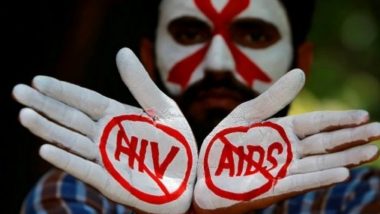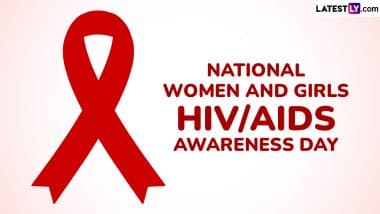For an illness that is so prevalent across the globe, there is very little awareness about HIV. While most people have an idea that it is an easily transmitted viral infection, they do not know that the disease can spread through intravenous needles for drug use, childbirth and breastfeeding, or contact with infected blood apart from sex. If left untreated, HIV can destroy your immune system so much that it can no longer fight off subsequent infections, eventually leading to AIDS and death. Having a more in-depth understanding can truly protect you from the disease - whether you believe you are at risk or not.
1. HIV Is More Common In Women than Men
If you look at the number of women affected by HIV AIDS worldwide, approximately 17.8 million women around the world are HIV positive. This makes about 51 percent of people in the world who are affected by the virus. Unprotected, heterosexual intercourse is the leading cause and assuming the lack of contraception such as condoms or medicines, women are at a higher risk of contracting the virus during vaginal sex. What Causes HIV AIDS? (And What Doesn’t).
2. HIV Infection Can Be Confused With Flu
Unlike other diseases, HIV does not come with a set of easy-to-recognise red flags. If you are infected with the virus, you can experience minor flu-like symptoms such as body aches, night sweats, fever and rash. These symptoms can show up anywhere from two weeks after the virus acquired. Making things more confusing these symptoms disappear quickly blinding patients to the fact that there is nothing seriously wrong and allowing to fly HIV under the radar. World AIDS Day 2019 Date and Theme: Significance And History Related to the Day That Creates Awareness About HIV Infection.
3. HIV Positive People Are Often Unaware Of the Diagnosis
When it comes to HIV, early detection is critical to prevent the spread of the infection. However, the only way to know for sure that you have HIV is to get tested. It turns out that 15 percent of people living with the disease are unaware of the diagnosis and 40 percent of new infections come from people who are unaware of their own HIV. HIV test only involves a simple blood drawing, so if you had unprotected sex recently, get yourself tested.
4. You Can Take a 'Morning-After' Pill for HIV
If you accidentally had a wild night with a new partner, you can take one more pill apart from the morning after-pill to block pregnancy. If you feel that you have been exposed to the virus, you can take a similar pill to prevent HIV infection. This treatment is known as post-exposure prophylaxis, or PEP. You need to take the pills for 28 days just like your morning after-pill, the earlier you start taking it, the better. However, ensure that you consume it within 72 hours of intercourse. HIV Infection Ups Risk of Heart Failure, Stroke.
5. HIV Is No Longer a Death Sentence
Gone are the days when HIV meant that you have only a few days to your life. While there is no cure for HIV AIDS, the life expectancy of people suffering from the disease has increased over the years. In the past, HIV treatment required one to take multiple pills with lots of side effects like abdominal pain, nausea, diarrhoea, headaches, and vivid dreams. The new treatments have no side effects, and the drugs are combined in a single tablet. Even in the case of advanced HIV, some medicines suppress the virus and rebuild the immune system. With time, these medications are only expected to get better.
Doctors are now testing bi-monthly treatment injections that can be used to treat the infection instead of taking daily pills. We owe our life to all the incredible medical breakthrough.
(The above story first appeared on LatestLY on Dec 01, 2019 08:00 AM IST. For more news and updates on politics, world, sports, entertainment and lifestyle, log on to our website latestly.com).













 Quickly
Quickly




















